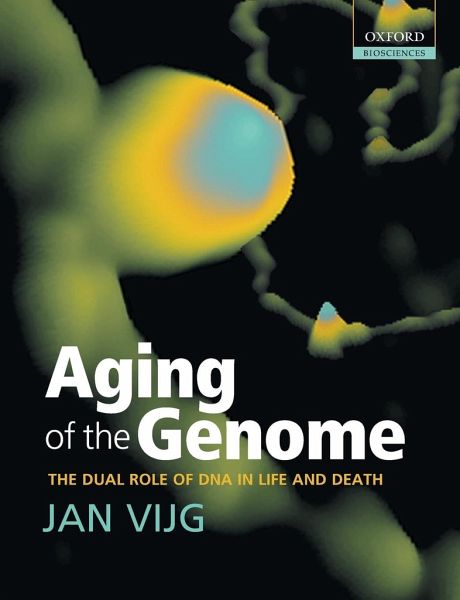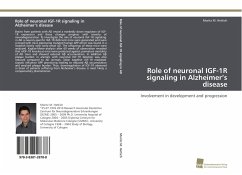
Aging of the Genome
The Dual Role of DNA in Life and Death
Versandkostenfrei!
Versandfertig in 1-2 Wochen
92,99 €
inkl. MwSt.

PAYBACK Punkte
46 °P sammeln!
Aging has long since been ascribed to the gradual accumulation of DNA mutations in the genome of somatic cells. However, it is only recently that the necessary sophisticated technology has been developed to begin testing this theory and its consequences. Vijg critically reviews the concept of genomic instability as a possible universal cause of aging in the context of a new, holistic understanding of genome functioning in complex organisms resulting from recentadvances in functional genomics and systems biology. It provides an up-to-date synthesis of current research, as well as a look ahead t...
Aging has long since been ascribed to the gradual accumulation of DNA mutations in the genome of somatic cells. However, it is only recently that the necessary sophisticated technology has been developed to begin testing this theory and its consequences. Vijg critically reviews the concept of genomic instability as a possible universal cause of aging in the context of a new, holistic understanding of genome functioning in complex organisms resulting from recent
advances in functional genomics and systems biology. It provides an up-to-date synthesis of current research, as well as a look ahead to the design of strategies to retard or reverse the deleterious effects of aging. This is particularly important in a time when we are urgently trying to unravel the
genetic component of aging-related diseases. Moreover, there is a growing public recognition of the imperative of understanding more about the underlying biology of aging, driven by continuing demographic change.
advances in functional genomics and systems biology. It provides an up-to-date synthesis of current research, as well as a look ahead to the design of strategies to retard or reverse the deleterious effects of aging. This is particularly important in a time when we are urgently trying to unravel the
genetic component of aging-related diseases. Moreover, there is a growing public recognition of the imperative of understanding more about the underlying biology of aging, driven by continuing demographic change.














